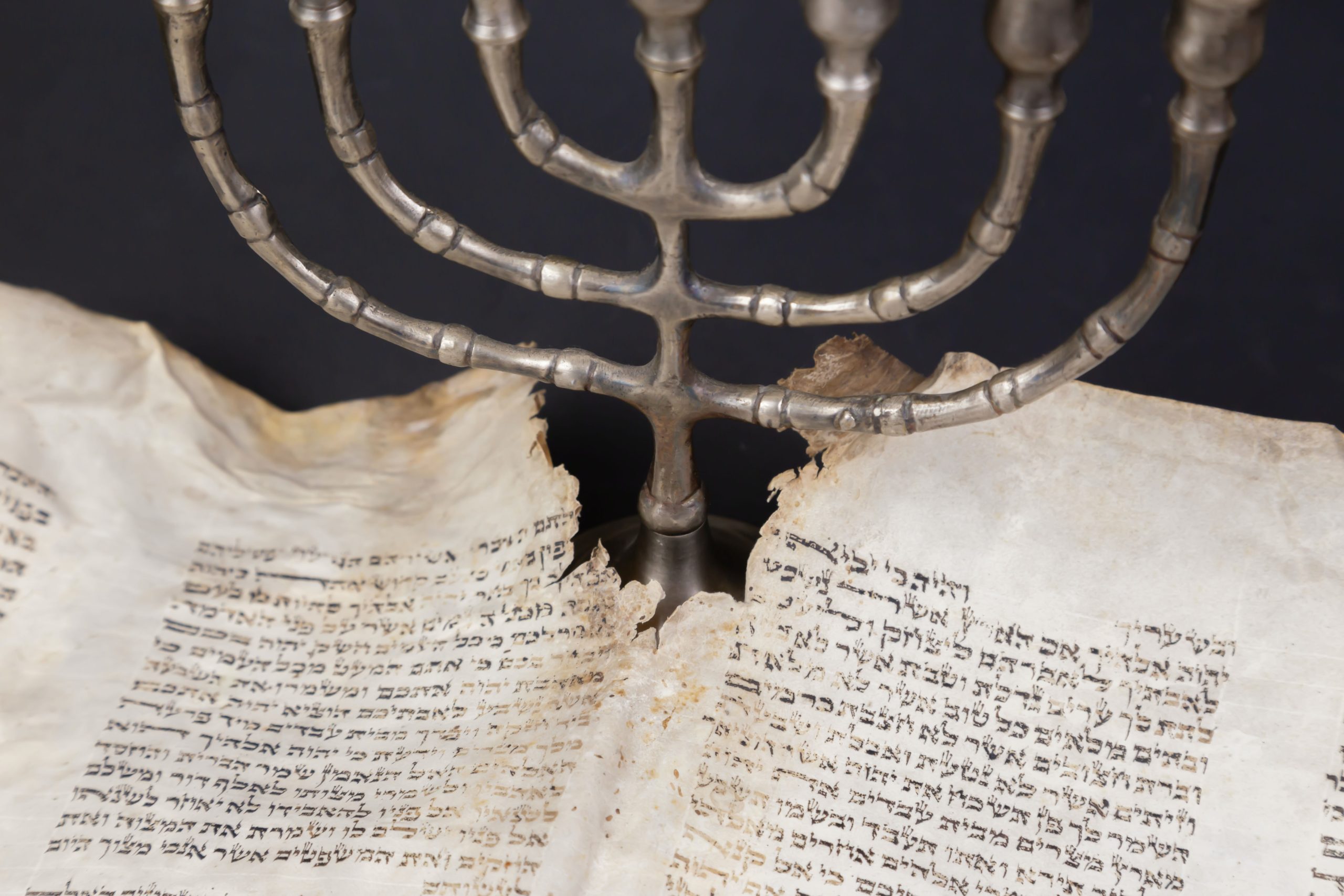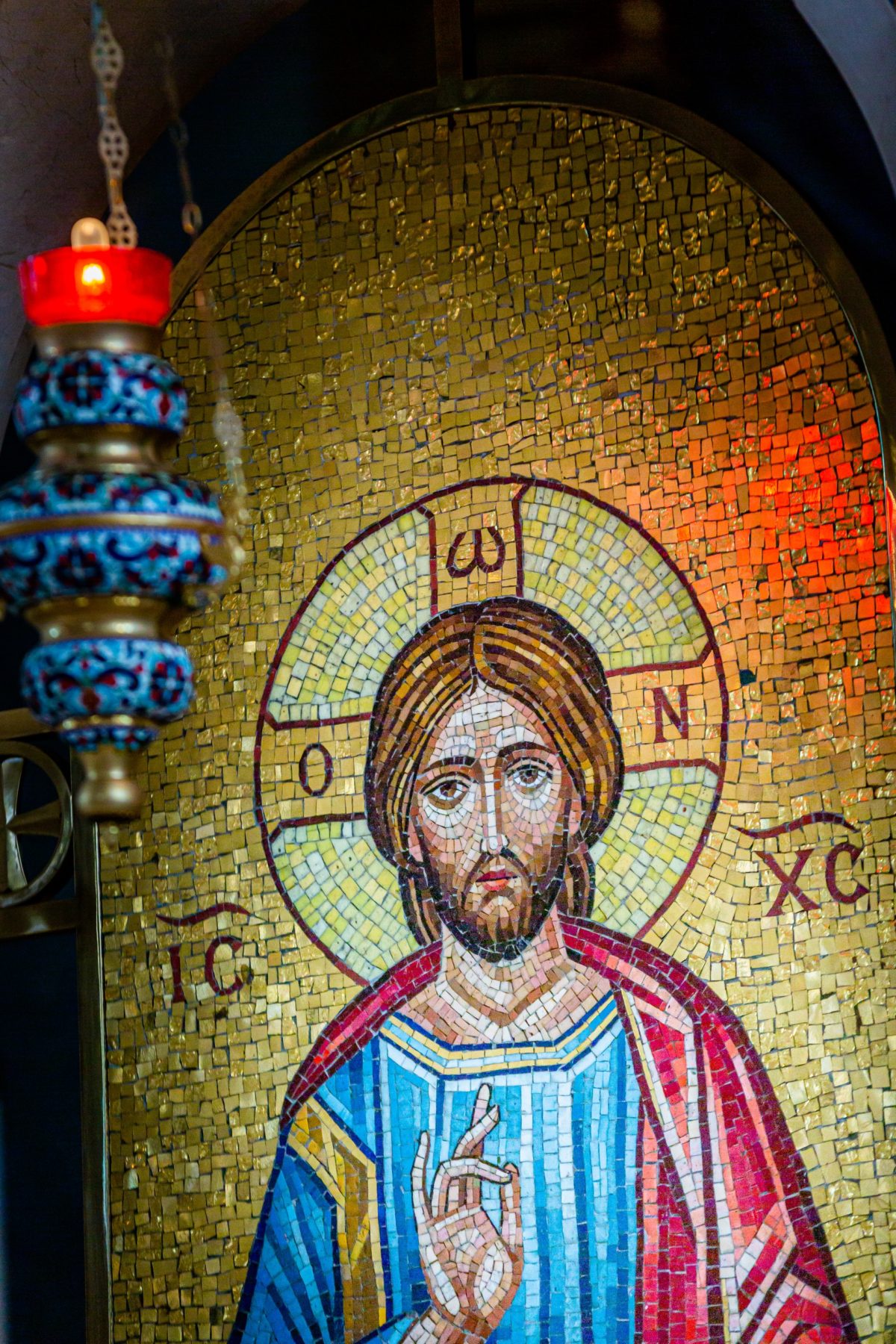By Joel Stevao
Since the inception of the Church Christians have faced the dilemma between the continuity and discontinuity of the Mosaic Law. Is the believer bound to keep the law? How do Christians relate to the Sabbath? In this paper I will argue that the Mosaic Law and its regulatory purpose were intended for a period, for the people of Israel, to provide guidelines to their relationship with God under the Old Covenant and Christians are under a new covenant and subject to the Law of Christ, a law that is fulfilled by loving God and ones neighbor as oneself. (Mark 12:28-31).
The Purpose of the Mosaic Law in the Old Testament
The first purpose of the Mosaic Law was to show God’s graciousness to Israel, His people. Abraham was called from among the gentiles as the father of the nation of Israel because God chose to enter into a special relationship with them. Israel became God’s treasured possession (Ex.19.5) out of the nations of the world. The second purpose was for provision for approaching God which intended Israel to become a holy nation “a kingdom of priests” (Ex.19.6) and functioned as a blessing for those already redeemed. The third was to explain how to live the life of faith and please God. 1
The Law of Moses Cannot Save
Theologians agree that the Law had no salvific promise due to the sinful nature of men making them unable to keep the entire Law which is a requirement to be saved. The apostle Paul said that “The law of Moses was unable to save us because of the weakness of our sinful nature. So God did what the law could not do. He sent his own Son in a body like the bodies we sinners have. And in that body God declared an end to sin’s control over us by giving his Son as a sacrifice for our sins.” (Romans 8:3). The inability of the law to save is openly taught in the New Testament. Paul spoke to an audience in Antioch explaining that “through Him (Jesus), everyone who believes is justified from everything you could not be justified from by the Law of Moses” (Acts 13:39). 2 We see similar teachings in the New Testament where Peter speaking at a meeting in Jerusalem, reports his experience where a group of Pharisees wanted the Gentiles to be circumcised and required to keep the Law of Moses but Peter stood up and asked them: “Now then, why do you try to test God by putting on the necks of Gentiles a yoke that neither we nor our ancestors have been able to bear? And Peter responds to his own question by saying “No! We believe it is through the grace of our Lord Jesus that we are saved, just as they are.” (Acts 15:10-11).
We find further discussion in Romans 7 where Paul explains that even though the law was good, sin produced death because the law made him know what sin is. (Romans 7:7). It does not mean that the law was bad, on the contrary, it was holy, righteous, and good but unable to save.
As professor Moo puts it this way “Paul summarizes in Romans 8:3, the law cannot rescue from the power of sin because the law is “weakened by the flesh (NIV ‘sinful nature”). Paul again here describes human sinfulness as the reason the law cannot bring salvation. 3
The Law of Moses and the Law of Christ
The Apostle Paul teaches that Christians are not bound to the Law of Moses but bound the Law of the Spirit of Christ. Paul argues that the law given at Sinai makes no claim on those who believe in Christ, whether Gentile or Jew. We read in Galatians 2:15 that no one is justified by the works of the Law but by faith in Christ Jesus. Paul explains in Galatians 17-21 that the Law of Christ is not a license to live in sin or else someone would be a lawbreaker, but because righteousness was obtained not by the Mosaic Law but by faith in Christ through His death on the Cross.
Paul makes claims vigorously in Galatians 3:10-14 that those who rely on the work of the law are cursed because it was impossible to do everything that the law requires. Someone would have to live by the law to be justified but because of our inability to keep it, one could not be justified. Faith in Christ is the central theme of Paul’s preaching and since the law was not based on faith (v.12) the law was a curse, but Christ redeemed us from the curse of the law becoming a curse for us. Paul goes on to say that “He redeemed us so that the blessing given to Abraham might come to the Gentiles through Jesus Christ so that by faith we might receive the promise of the Spirit.” (v.14)
Freedom in Christ
The Apostle Paul continues to admonish the Galatians in chapter five that Christ has set us free from the yoke of the law mentioning that being circumcised was going back to slavery and for those who were trying to be justified by the law had fallen away from grace since circumcision or not circumcision had no value. Paul makes no distinction from the Decalogue to the rest of the law when he says that “every man that allows himself to be circumcised was obligated to keep the whole law.”(v.3)
For Paul, those who were trying to make the church go under the law were agitators and urged the church not to take any other view.
Moral Standards in the Mosaic Law and Law of Christ
God’s moral law didn’t change in the new covenant. The Law of Christ is the counterpart to the Law of Moses and just as the Mosaic Law was normative for the Jews, the Law of Christ is binding for the Christian. Both are specific applications of God’s eternal moral standards. 4
Paul appeals to the Gentiles to engage in ethical behavior by walking in the Spirit (Gal. 5:16) and being led by the Spirit and fulfilling the Law of Christ by bearing one another’s burdens (Gal. 6:2). Paul explained that if we walk under the Law of the Spirit, we will not gratify the desires of the flesh, because they are in conflict with each other and one should not do whatever their flesh desire. Those who live according to the flesh will produce fruits of the flesh and will not inherit the Kingdom of God (Gal. 5:21). There seems to be an apparent contradiction in the fact that again we are bound to a set of rules and regulations to obtain God’s approval but this is not the case. As I explained before, by obeying the entire law one could not be saved but obeying the Law of Christ results in Salvation which is done by faith alone in Christ. John wrote if we keep Jesus’ commandments, we know that we are in Him and if we are in Him we must live as Jesus did (1 John 2: 3-6). The Law of Christ is fulfilled in loving God above all things (Mathew 22: 37) and your neighbor as yourself. (Gal. 6:2).
Professor Strickland summarizes the Moral Law expressed in the Mosaic Law under the old covenant has its parallel to the Law of Christ under the new covenant, so the believer today may know God’s moral will. 5
The Fulfillment of the Law
It is important to mention that the Mosaic Law was not just disposed of as a modem tossable, used once and discarded, it was still Scripture and although everything in it was no longer applicable, it could still instruct when used with a full understanding of its place and purpose. 6
Jesus denied any wish to abolish the Law or the prophets but instead He predicted their fulfillment (Mat. 5:17-18). Jesus fulfilled the Law in several ways: First, he fulfills the sacrificial system. The sacrifices in the Law could not take ways sins (Heb. 10:3), had to be continually repeated (Heb. 7:27), and were offered by an imperfect and finite priest. (Heb. 7:23-28). Second, Jesus fulfills the righteousness of the Law which no one could be considered righteous just observing the Law (Rom. 3:20). So in Christ, we are made righteous before God. (2 Cor. 5-21).
The focus should not be on keeping the Law as a merit system but on Jesus Christ 7
The Mosaic Sabbath
The Sabbath command was given to the Israelites in Exodus 20:8. “Remember the Sabbath to keep it holy”. The main characteristic feature of this command was the absence of regular work on this day. Everyone should stop from their daily routine work, men or women, animals, and sojourners, equally had to stop and rest. Anyone who would desecrate it was to be put to death (Ex. 31:14). As part of the total obedience, there was a concern that all should share the benefits and privileges of release from daily labor for “humanitarian purposes (Ex.23:12) 8
The Sabbath was also given as a memorial of God’s redemptive activity in liberating the people from Egypt (Deut. 5:15).
The Fourth Commandment and the Decalogue
The Christians who keep the Sabbath appeal to the fourth commandment as a valid eternal moral Law and should be normative for all peoples in the same way as the rest of the Decalogue. They accept that most of the Law was annulled or canceled as the sacrificial system but insist that the Decalogue still remains since it has a special status on the Covenant, but the Old Testament makes no distinction between the Mosaic Law and the Decalogue, they are seen as one. We find in Exodus 34:28 that the Ten Commandments were the words of the covenant, also Deuteronomy 4:13 speaks of the Ten Commandments as God’s covenant. The formulation of the Decalogue is itself covenantal and underlines the fact that it is a miniature of the whole Mosaic covenant. 9
Professor Kline explains that the Decalogue is the element used as pars pro toto, the “part taken or standing for the whole”. 10
Just as the Mosaic covenant as a whole is to be seen as a particular expression of God for His people for a time of their history, so the Decalogue must be viewed in the same light. 11
Professor A.T. Lincoln explains that the Ten Commandments have been given to a specific setting and reason must be seen as the regulation of Israel’s life under the Mosaic covenant. They provide an expression of God’s will for his people at that stage of their history. The continuing influence of these commandments will therefore depend, not on the status of the Decalogue but, on the relation to the later and fuller reflection of God’s character and fulfillment of God’s will for His people, both can be seen in Christ. It is this factor the only criterion for deciding whether the fourth commandment, in particular, has continuing force as moral law and not the fact that it is part of the Decalogue. 12
The Decalogue is part of the Mosaic Law and I believe that if any part should be kept as normative for all people, then all of the Old Covenant should be kept as well including the sacrificial system.
How Christians Relate to the Sabbath
To answer the question of how Christians relate to the Sabbath, it is valuable to look at the church in the New Testament. The Pauline churches were following Paul’s teachings and didn’t keep the Sabbath. Some Jewish Christians were observing the seventh day as were also some Gentile Christians. The passage in Galatians 4:8-11 provides evidence that Jewish Christians were keeping the Sabbath and teaching the Gentiles do to so. Paul writes “You observe days and months and season and years (4:10). The days almost certainly referred to the Sabbaths, months referred to the moons, and seasons to the great festivals. 13
It seems that they were preaching the whole Jewish legal system as required for salvation and Paul condemns it very harshly. Paul considers those observances as going back to slavery (Gal. 4:9) and that he might have wasted his efforts on them (Gal.4:10). His strongest reaction was to the fact that they were teaching the Sabbath observance as necessary for salvation.
When the apostles met at the Jerusalem council in Acts 15, there was a discussion raised by some Pharisees that circumcision should be imposed on the Gentiles for them to be saved. Peter and James spoke against such circumcision and a letter was sent to the Gentiles telling them to avoid certain sins but never mentioned keeping the Sabbath. In Romans 14:5 Paul forbids those who observe the Sabbath to condemn those who do not. Paul recognized that some were observing the Sabbath but when the Gospel was not at stake, he showed acceptance and tolerance towards Jewish Christian Sabbath observance but considered them weaker brethren who had not fully understood the transition from the old economy to the new. 14
The answer to the question, of how Christians relate to the Sabbath is that Christians are not bound to observance since this was a command given to Israel. It can be used as a day for physical rest as any other day of the week but it is not a commandment and is not necessary for salvation.
The Responsibilities of the New Testament believer
The believer is to present his body as a living sacrifice (Rom. 12-1), walk in the Spirit (Eph. 5-9), reject godless ways and worldly desires, and live self-controlled, upright, and godly lives in the present age, (Titus 2:12), and the reasons believers should seek to live with the precepts of grace is because it pleases God (Heb. 13:16), it demonstrates our love for Christ (John 14:15); it will help others (Matt 5:16); it will bring true joy and blessing to our own hearts (John 15:10-11). 15
Conclusion
The Old Covenant or the Mosaic Law was given to the people of Israel for a time and a New Covenant was inaugurated by Christ that is called the Law of Christ. The Mosaic Law ceased and was described by Paul as the ministry of death, it was transitory and no longer remains, but the New Covenant has greater glory and will last. (2 Cor. 3:7-11). The believer is now governed by the Law of Christ that brings salvation through faith in Jesus and no supervision of the law is necessary anymore. (Gal. 3:25). The Mosaic Law was good but unable to save due to our inability to keep all the commandments. The Law was fulfilled in Christ. The Mosaic Law in itself is no longer binding on Christians. The observance of the Sabbath was also discontinued since it was part of the law. I have demonstrated that God’s moral standards were not changed in the New Covenant, as God was able to sufficiently implement his moral standards without the Mosaic moral legislation prior to the Mosaic economy, he can communicate and enforce his ethic without the Mosaic covenant after the end of the Mosaic economy. 16
The Mosaic Law does not apply to the life of the believer today because believers are under a new Law which is the Law of Christ.
Works Cited
- Greg L. Bahsen, Walter C Kaiser Jr, Douglas J. Moo, Wayne G Strickland, Willem A. VanGemeren, Five Views on Law and Gospel (Grand Rapids: Zondervan, 1999), 236-405
- Albert H. Baylis, From Creation to the Cross (Grand Rapids: Zondervan, 199), 138.
- Luck, G. Coleman, Christian Ethics, Bibliotheca Sacra (Dallas: July, 1961), 118 – 471, Theological Electronic Library.
- M.G. Kline, Treaty of the Great King (Grand Rapids: Eerdmans, 1963), 23-26
- Greg L. Bahsen, Walter C Kaiser Jr, Douglas J. Moo, Wayne G Strickland, Willem A. VanGemeren, Five Views on Law and Gospel (Grand Rapids: Zondervan, 1999), 236-238.[↩]
- Greg L. Bahsen, Walter C Kaiser Jr, Douglas J. Moo, Wayne G Strickland, Willem A. VanGemeren, Five Views on Law and Gospel (Grand Rapids: Zondervan, 1999), 328.[↩]
- Ibid, p. 334.[↩]
- Greg L. Bahsen, Walter C Kaiser Jr, Douglas J. Moo, Wayne G Strickland, Willem A. VanGemeren, Five Views on Law and Gospel (Grand Rapids: Zondervan, 1999), 276-277.[↩]
- Greg L. Bahsen, Walter C Kaiser Jr, Douglas J. Moo, Wayne G Strickland, Willem A. VanGemeren, Five Views on Law and Gospel (Grand Rapids: Zondervan, 1999), 277.[↩]
- Albert H. Baylis, From Creation to the Cross (Grand Rapids: Zondervan, 199), 138.[↩]
- Ibid, p. 139.[↩]
- D.A.Carson, From the Sabbath to Lord’s Day (Oregon: Zondervan, 1982), 351-354.[↩]
- Ibid, p. 356.[↩]
- M.G. Kline, Treaty of the Great King (Grand Rapids: Eerdmans, 1963), 23-26[↩]
- D.A.Carson, From the Sabbath to Lord’s Day (Oregon: Zondervan, 1982), 356.[↩]
- Ibid, p. 358.[↩]
- Ibid, p. 366.[↩]
- D.A.Carson, From the Sabbath to Lord’s Day (Oregon: Zondervan, 1982), 367.[↩]
- Luck, G. Coleman, Christian Ethics, Bibliotheca Sacra, Dallas: 1961, 118 – 471, Theological Electronic Library.[↩]
- Greg L. Bahsen, Walter C Kaiser Jr, Douglas J. Moo, Wayne G Strickland, Willem A. VanGemeren, Five Views on Law and Gospel (Grand Rapids: Zondervan, 1999), 405.[↩]



